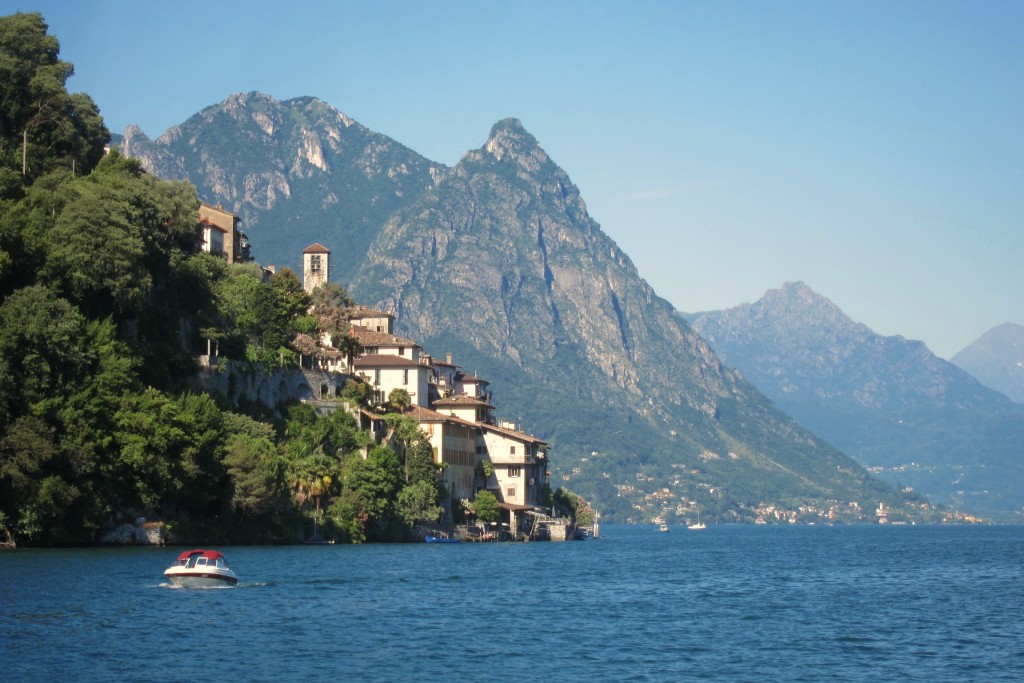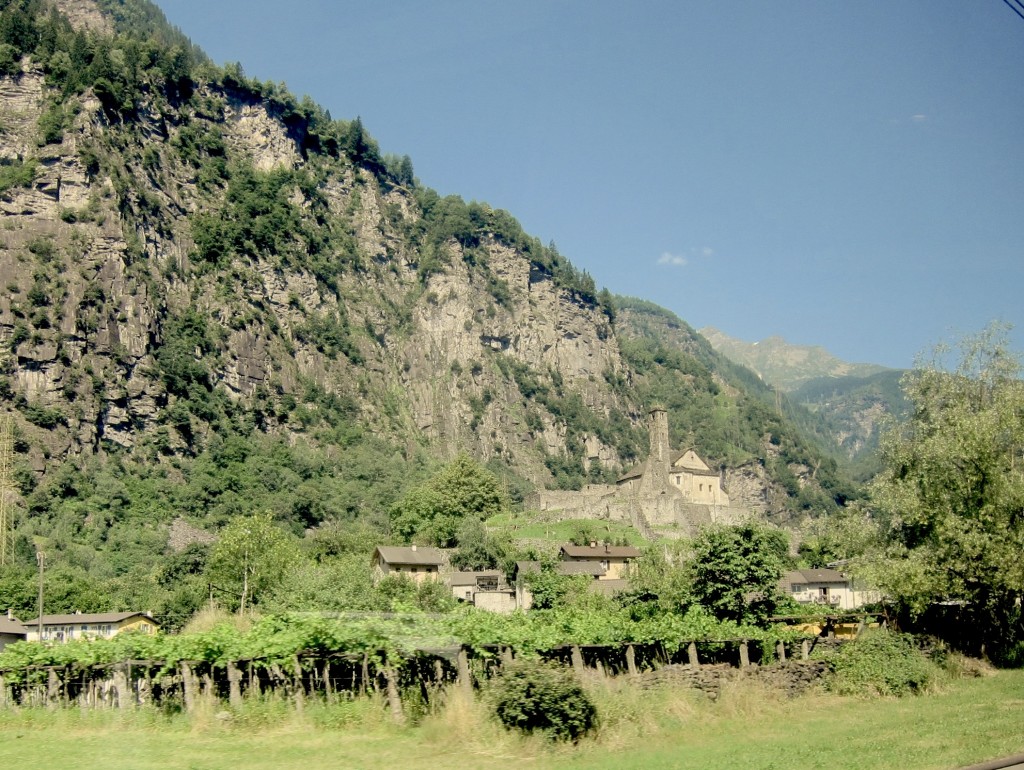Reflections on the Lake
The view of Lake Lugano from a boat excursion on the “Paradiso”
If you were placed next to two living legends for a week, would you feel inspired, intimidated, overshadowed, amazed, or all of the above? I am still processing a period I just had at the Martha Argerich Project at the Lugano Festival with these two great musicians–memories that will last a lifetime. Two years ago, I had a similar opportunity with the two, but this was even more intense, more incredible, and more inspiring. Still, the lull after such a period is admittedly an enormous comedown.
Because of my close proximity as page turner for the rehearsals, recording session, and concert, I again have to severely limit what I can say publicly so as not to be intrusive into the private workings and process of what I witnessed. But I can say that these are the two hardest-working musicians I have ever witnessed. The first evening, I witnessed an all-night practice session in which Sergei Babayan demonstrated breathtaking prowess in pieces he is preparing for a Wigmore Hall, and also the Prokofiev Second Concerto. Simply hearing how he practiced with extroverted demonstration was enough to prove his abilities as a teacher, interestingly enough. Most material at this point was practiced largely at tempo except in select spots–but I had the sense that Babayan’s ability to process and adapt to change in syntax, fingering, and phrasing, is above the average of any musician I have seen. The practicing itself highlighted, almost to the pianist himself, chord voicings, pared-down structures of the piece, as well as infinite shadings in experimental succession. I feel had I learned to practice this way earlier in life I would have had many advantages. What is astonishing is Sergei Babayan’s equally inventive vivaciousness in life in each moment and in each story he tells–everything is expository and teaches about compassion, humor, understanding, and lots of bringing to awareness aspects of life that only a highly sensitive, perceptive person could bring.
Rehearsals with Babayan and Argerich typically started at 1am and lasted until well after sunrise. It struck me again and again: Argerich, now 74, works this hard at this stage in her life. They worked tirelessly and almost without break, except for the occasional 3am dinner backstage with many humorous anecdotes backstage that had everybody in stitches. There was lots of fruit and prosciutto…
Martha Argerich and Sergei Babayan perform the premieres of new selections of Prokofiev as transcribed by Sergei Babayan. Turning pages for the great artists required a level of focus I could hardly imagine, in order not to get distracted
A recording session for the pieces–a highly effective set of Prokofiev numbers as transcribed by Babayan–was equally amazing. Everything was first recorded straight through as complete takes. Rarely were smaller sections needed as patches, because the concentration and accuracy of these players was something unusual. Both performers made demands on themselves that really split hairs for even the most seasoned musicians. Martha Argerich, for example, rarely seemed satisfied with any take, repeating as long as time would allow.
Playbacks during a recording session of the pieces in the hall, that took place amazingly enough immediately before the concert.
The atmosphere in the town was one of color and celebration–and the food was amazing in quality and creativity. However, it is up to five times the price of anything elsewhere.
Lugano is the home of incredible (and incredibly expensive) gastronomic delights. Here are a selection of eclairs and meringues with cookie and chocolate crumble, with vaporized essence of mint, presented at the Metamorphosis restaurant in Paradiso
A highlight of the festival was the final evening, in which four concerti were performed, beginning with Sergei Babayan’s performance of Prokofiev Second.
Sergei Babayan with Maestro Jacek Kaspszyk and the Orchestra della Svizzera Italiana after Babayan’s colossal performance of the Prokofiev Second Concerto
Sergei Babayan’s performance of Prokofiev’s Second Concerto was fantastically inspired and risky in a piece of massive tragic-heroic proportions. The performance was special despite a totally inadequate piano whose range couldn’t project above middle C, an embarrassingly dead acoustic in the hall, and an orchestra whose grasp of the complex score also left much to be desired.
I once heard an esteemed conservatory professor quoted as saying that Babayan’s Prokofiev Second was the greatest performance of anything by Prokofiev that she had ever heard. Having heard the rehearsals and performances of this piece, I would have to agree with the assessment.
Here is a video excerpt of the finale in another performance that highlights the sharpness of the score, and its lush romantic rhetoric in places:
Where would we be without smart phones, right?
Swiss scenery north of Lugano from the train
The American pianist Amy Fay once traveled to Europe to study with Liszt, Tausig, von Bülow. Of Tausig, she inimitably said “trying to play piano after he had demonstrated was like copying forked lightning with the end of a wetted match.” Going back to the practice room, I can certainly relate to this feeling, having heard Sergei Babayan and Martha Argerich.
Two years ago, Martha started calling me “Zoltan” which is in fact an old variation of my name, even correcting me when I introduced myself to others as “Zsolt”. She continued to do so this summer, although at the very end, she called me “Zsolt” finally. I almost wish she hadn’t, because the former was somehow more charming.






